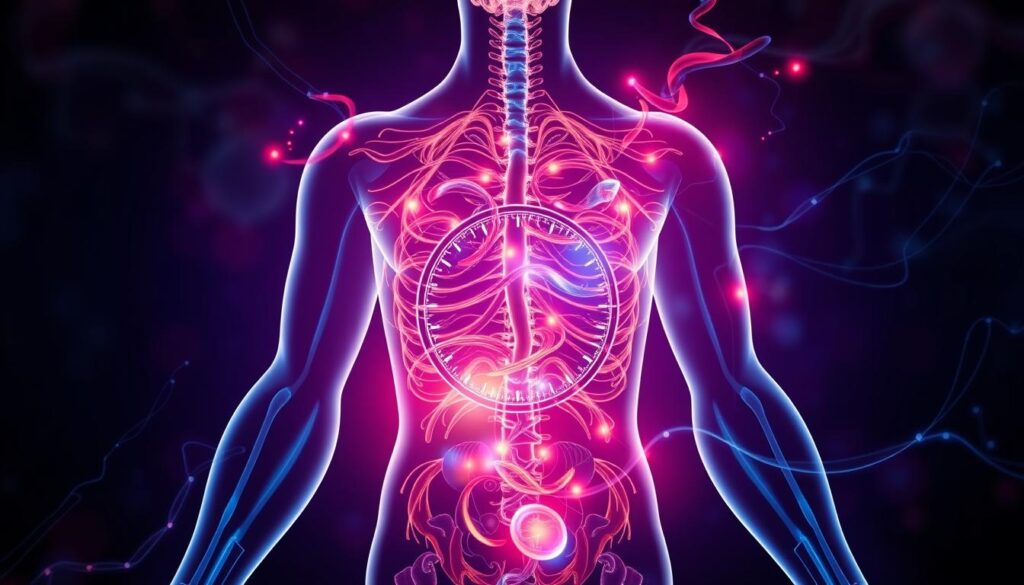Are you curious about how intermittent fasting affects your metabolism? Learn how fasting can either boost your metabolic rate or slow it down. Discover the science behind intermittent fasting and how to maximize your metabolism for better health and weight management.
Intermittent fasting changes how your body uses energy. By knowing how fasting affects your metabolism, you can make smart choices for your health. Get ready to explore how intermittent fasting works with your body’s metabolic processes.

Unraveling the Effects of Intermittent Fasting on Metabolism
Intermittent fasting is getting a lot of attention for its benefits on metabolism and weight control. But, there are many myths and misunderstandings about fasting and metabolism. Let’s look into the science behind these effects and see what changes your metabolism.
Metabolism and Intermittent Fasting: Busting Common Myths
Many think fasting slows down metabolism, making you burn fewer calories. But, studies show that fasting and calorie burning can be beneficial. During fasting periods, your metabolism stays the same or even gets a bit faster.
Hormonal Changes: The Driving Force Behind Metabolism Shifts
The secret to the best fasting methods for metabolism is in the hormonal changes. When you fast, your body changes hormone levels to help with metabolism during intermittent fasting. This includes more growth hormone and less insulin, which can help with does fasting increase metabolism? and fasting for fat loss.
Understanding metabolism fasting science helps you see how to use diet to improve your metabolism. This way, you can make the most of intermittent fasting for your health and fitness goals.

“Intermittent fasting has been shown to positively impact hormonal regulation, leading to increased fat burning and preservation of lean muscle mass.”
Exploring the Metabolic Benefits of Intermittent Fasting
Intermittent fasting is gaining attention for its metabolic benefits. It involves alternating between fasting and eating. This approach can lead to significant changes in your health and fitness goals.
Increased Fat Burning and Weight Loss Potential
Intermittent fasting boosts your body’s fat-burning ability. When you fast, your body uses fat for energy, increasing fat breakdown. This can help with weight management and support sustainable weight loss if you eat well and stay active.
Preservation of Lean Muscle Mass During Fasting Periods
Many think fasting means losing muscle, but it can actually help keep your muscles strong. By planning your meals and workouts, you can use your body’s hormones to protect your muscles. This is great for those wanting a leaner, toned body.
